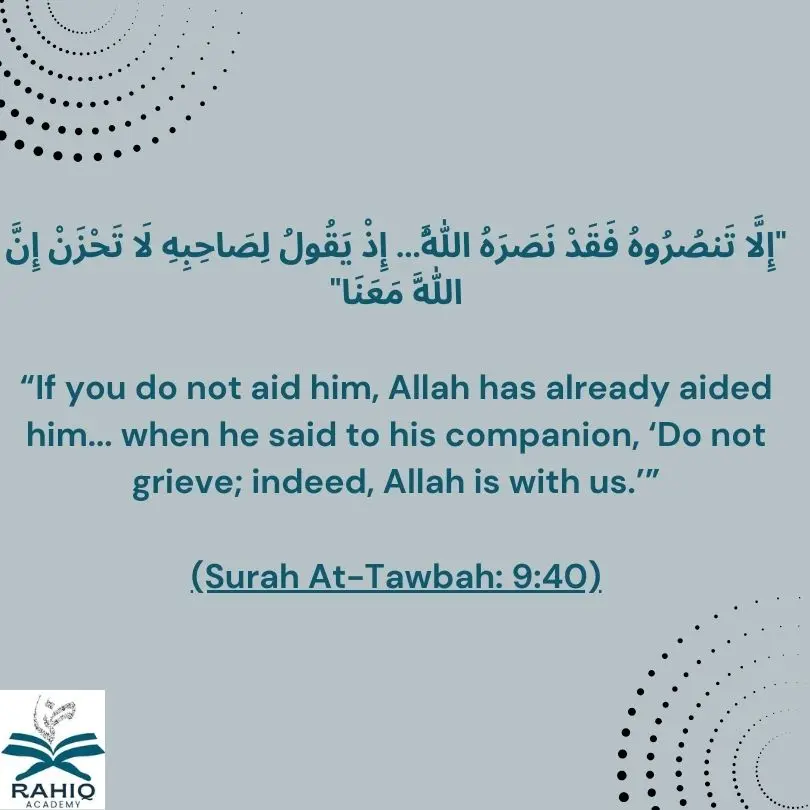“In the face of every challenge, he stood firm, unwavering in his devotion.”
These words perfectly encapsulate the life story of abu bakr al siddiq , a man whose legacy continues to inspire. As the closest companion of Prophet Muhammad and the first Caliph of Islam, Abu Bakr was a paragon of faith, leadership, and humility. His life offers timeless lessons in resilience, justice, and selfless service to the Muslim community.
From the moment he embraced Islam to his pivotal role as Caliph, Abu Bakr’s journey is a testament to his unwavering dedication to Allah and His Messenger.
Who Was Abu Bakr?
Abu Bakr Al-Siddiq, born as Abdullah ibn Abi Quhafa in 573 CE, was a member of the Quraysh tribe’s Banu Taym clan. His early life was marked by nobility and integrity, earning him the trust and admiration of his community. Even before Islam, Abu Bakr was known for his rejection of idolatry, aligning with monotheistic beliefs.
Abu Bakr’s relationship with the Prophet Muhammad (ﷺ) began long before the advent of Islam. Their bond deepened when Abu Bakr became the first adult male to accept Islam. His immediate and unwavering belief in the Prophet’s message earned him the title Al-Siddiq (The Truthful). The Prophet himself said:
“لو كنت متخذا خليلا من أمتي لاتخذت أبا بكر، ولكن أخي وصاحبي”
“If I were to take a close friend from my Ummah, I would have taken Abu Bakr. But rather, he is my brother and companion”
(Sahih Bukhari, Hadith 3661)
Abu Bakr’s Role in Early Islam
Abu Bakr’s Role in Early Islam became a vital supporter From the outset of his conversion, He used his influence and wealth to benefit the nascent Muslim community, freeing many enslaved Muslims, including Bilal ibn Rabah. His generosity and commitment knew no bounds, and he played a crucial role in spreading the message of Islam.
During the Boycott of the Muslims in Mecca, Abu Bakr stood by the Prophet, offering moral and material support. His steadfastness during these trials solidified his position as a pillar of the Muslim community.
His Early Life
Raised in a family that valued honor and justice, Abu Bakr developed traits of honesty, humility, and wisdom from an early age. His reputation as a trustworthy merchant preceded him, and his knowledge of Arab genealogy and poetry made him a respected figure in Meccan society.
These qualities in his early life laid the foundation for his future leadership, equipping him to guide the Muslim Ummah through its formative years.
Migration to Madinah

One of the most defining moments in Islamic history was the Hijrah (migration) from Mecca to Madinah. When the Quraysh plotted to kill the Prophet, Abu Bakr was chosen to accompany him on this dangerous journey. They sought refuge in the Cave of Thawr, where Abu Bakr demonstrated his unwavering devotion and vigilance.
During this time, Allah revealed:
“إِلَّا تَنصُرُوهُ فَقَدْ نَصَرَهُ اللَّهُ… إِذْ يَقُولُ لِصَاحِبِهِ لَا تَحْزَنْ إِنَّ اللَّهَ مَعَنَا”
“If you do not aid him, Allah has already aided him… when he said to his companion, ‘Do not grieve; indeed, Allah is with us.’”
(Surah At-Tawbah: 9:40)
Abu Bakr’s courage and trust in Allah were instrumental in the success of Migration to Madinah.
Upon reaching Madinah, he continued to support the Prophet in establishing the first Islamic state.
His role in Battles of Badr and Uhud
Abu Bakr’s dedication to Islam extended to the battlefield. During the Battle of Badr, the Muslims faced a formidable enemy, but Abu Bakr’s faith never wavered. His leadership and courage inspired the Muslim army, contributing to their decisive victory.
In the Battle of Uhud, when the Muslim forces experienced setbacks, Abu Bakr remained steadfast. His resilience and unwavering support for the Prophet during these critical moments underscored his commitment to defending Islam.
First Caliph in Islam
After the Prophet’s passing, the Muslim Ummah was in need of a strong and wise leader. Abu Bakr was unanimously chosen as the first Caliph in Islam, a position he accepted with humility. His caliphate was marked by decisive actions, including the suppression of the Ridda Wars, which preserved the unity of the Islamic state.
One of his most enduring contributions was initiating the compilation of the Quran. Recognizing the need to safeguard the divine message, he entrusted this task to Zayd ibn Thabit, ensuring that the Quran remained intact for future generations.
The Day the Prophet Died

The Day the Prophet died was a moment of profound grief for the Muslim community. In the face of this tragedy, Abu Bakr provided calm and decisive leadership. He addressed the people, saying:
“من كان يعبد محمدًا فإن محمدًا قد مات، ومن كان يعبد الله فإن الله حي لا يموت”
“Whoever worships Muhammad, know that Muhammad has died. But whoever worships Allah, know that Allah is Ever-Living and never dies.”
(Sahih Bukhari, Hadith 1241)
He then recited the Qur’anic verse:
“وَمَا مُحَمَّدٌ إِلَّا رَسُولٌ قَدْ خَلَتْ مِن قَبْلِهِ الرُّسُلُ”
“Muhammad is no more than a messenger; many messengers have passed away before him.”
(Surah Aal-E-Imran: 3:144)
This speech helped the Muslim community transition to the next phase of leadership with unity and faith.
His Death and Burial Place
Abu Bakr passed away in 13 AH (634 CE) after a brief illness. True to his humble nature, he requested a simple burial. He was laid to rest beside Prophet Muhammad (ﷺ) in the Chamber of Aisha (RA) within Masjid al-Nabawi. His burial alongside the Prophet and Umar ibn Al-Khattab (RA) reflects his lifelong closeness and unparalleled contributions to Islam.
FAQ
Q:Why was Abu Bakr special?
A:Abu Bakr was special for his unwavering faith, humility, and dedication to Islam. He was the first adult male to embrace Islam and was known for his truthfulness and loyalty to the Prophet.
Q:How Is Abu Bakr Related to Muhammad?
A:Abu Bakr was the Prophet’s closest companion and father-in-law through his daughter Aisha (RA). Their bond was marked by mutual trust and deep affection.
Q:What are the qualities of Abu Bakr Siddiq?
A:Abu Bakr’s qualities included faith, courage, humility, generosity, and wisdom. His leadership as the first Caliph exemplified justice and dedication to the welfare of the Muslim Ummah.
Conclusion
The life story of Abu Bakr Al-Siddiq (RA) offers invaluable lessons in faith, leadership, and service. His unwavering support for the Prophet, his wise governance, and his dedication to preserving Islam’s message ensured the stability and growth of the Muslim Ummah.
At RAHIQ Academy, we honor the legacy of such figures by providing comprehensive Islamic education. Explore our courses to deepen your understanding of the Qur’an, the teachings of the Prophet, and the lives of the Sahabah. Begin your journey of spiritual enrichment today by visiting RAHIQ Academy.




